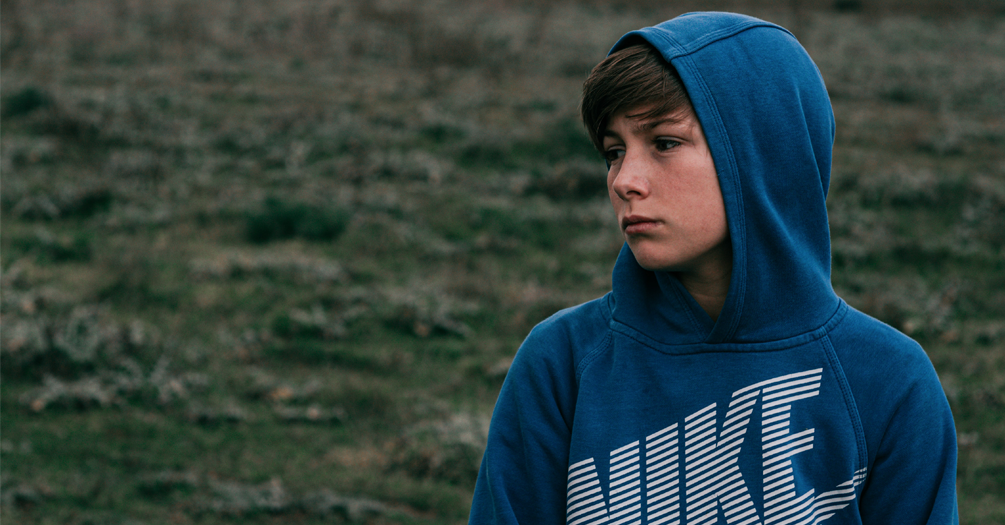Loss of Caregivers Leaves Children Grieving During the COVID-19 Pandemic

Chris Giang
Undergraduate Student at the University of Michigan
In the midst of the COVID-19 pandemic, there is another hidden pandemic that deserves our attention: More than 140,000 children in the US have experienced the loss of a primary parent or caregiver from COVID-19 (Hillis et al., 2021).
With COVID-19 disproportionately killing more people from racial and ethnic minority groups, children from these communities are subsequently hit hardest from this sudden onset of grief (Hillis et al., 2021). Death of a caregiver and orphanhood are significant traumas that can severely harm children’s health and development. Children from communities that were hit the hardest by COVID-19 may also experience disproportionate material hardships such as food insecurity and poverty, which can also negatively impact child development.
More attention should be directed towards children who have lost their parents or primary caregivers. Evidence- based intervention and policy action need to provide resources and create coordinated developmentally informed systems that seek to support children with trauma-informed practices through this traumatic experience of grief and loss. Using public health methods and understanding of structural factors can be brought to bear to help address these needs of children and prevent intergenerational transmission of trauma.
Grief and Loss
Even though grief is viewed as a universal response to the loss of a loved one, not every child processes their personal loss the same way. Children are particularly vulnerable, lacking the necessary emotional regulation to cope with this traumatic death of their caregiver. One model that attempts to conceptualize experiences of loss characterizes grief as a five stage process: denial, anger, bargaining, depression, and acceptance (Kubler-Ross, 1973).
Yet, COVID-19 further complicates the grieving process with many religious and cultural mourning rituals, norms, and practices being interrupted or completely absent (Kumar, 2021). Furthermore, social isolation from others during the pandemic has prevented children from saying goodbye to their loved one, leaving their grief unresolved (Albuquerque et al., 2021). This further extends the grieving process for children, increasing the risk for complicated grief, which is associated with increased risk for depression as well functional impairment (Fitzgerald et al., 2021).
Grief and Development
All children and adolescents go through a grieving process when a loved one dies (Santos et al., 2021). Children's responses to grief do not always resemble adult grief responses. Given that young children are still developing, their grief responses are often expressed through bodily expressions and play rather than through language (Chachar et al., 2021).
While their understanding—particularly of the permanence of death—is limited, children still seek to make sense of their loss with their ability to comprehend death dependent on their developmental stage, life experiences, individual temperament, parental communication patterns, and support from their environment (Chachar et al., 2021).
Furthermore, young children are dependent on their caregivers for emotional support, but this may not be possible if their caregivers are also grieving. Complicated grief during the COVID-19 pandemic could potentially disrupt development among children with negative consequences in the form of difficulties in school and increased risk of psychological disorders (Weinstock et al., 2021). Grief during adolescence may take the form of harmful behaviors such as substance abuse and risk taking behaviors in addition to the onset of mental health problems like anxiety or depression (Weinstock et al., 2021). This can be further exacerbated if the child or adolescent lacks an adequate support system, especially then the person the child would naturally turn to is also grieving or absent (Weinstock et al., 2021). Additionally, communities may be collectively impacted by a large number of deaths so resources may be stretched to meet the needs of all kids in the community.
Trauma-Informed Practices
Trauma-informed practices in settings where children are in schools, child care, and pediatric offices can help children process their grief as well as mitigate risks related to development (Champine et al., 2021; Hitchcock et al., 2021). Additionally, trauma-informed practices that center around health equity are well suited for fostering a culturally responsive environment that empowers children through acknowledging cultural differences in coping (TIPPS, 2021).
Being sensitive to children’s grief and trauma ensures that children are getting the equitable support needed to process the emotional trauma of losing a caregiver. Outreach to connect with families and alternate caregivers of children, as well as systems such as child welfare—who may now be responsible for children who have lost primary caregivers—is vital to ensuring equitable outcomes in terms of race, ethnicity, and socioeconomic status. This allows for the creation of safe, nurturing, and inclusive environments for children to grieve.
University of Michigan Initiatives to Support Children
Alison Miller, professor of Health Behavior and Health Education at Michigan Public Health, is collaborating with two groups that focus on child trauma:
- Zero to Thrive: Zero To Thrive focuses on infants and children ages 0-6 and is built on the premise that the period from pregnancy through early childhood is an especially sensitive time for mitigating the multi-generational effects of inequity, trauma, and adversity and promoting mental health. This team of researchers believes that providing families from the start with cutting-edge treatment and tools needed to sustain nurturing, supportive relationships will serve as a protective buffer that allows families to thrive now and into the next generation. Zero to Thrive harnesses the power of collaboration across the University of Michigan and with communities to create a portfolio of research, treatment, training, and advocacy initiatives that support well-being and resilience across two generations.
- Trauma-Informed Programs and Practices for Schools (TIPPS): TIPPS focuses on children from kindergarten through age 12, translating research and sharing strategies that help students realize their potential and become more resilient to the effects of trauma. The TIPPS model of a trauma-informed school is based on 10 pillars of content and recommendations. These 10 areas of focus are intentionally broad in order to allow schools to customize them to best fit their specific settings.
References
Albuquerque, S., & Santos, A. R. (2021). “In the Same Storm, but Not on the Same Boat”: Children Grief During the COVID-19 Pandemic. Frontiers in Psychiatry, 12, 23.
Chachar, A. S., Younus, S., & Ali, W. (2021). Developmental Understanding of Death and Grief Among Children During COVID-19 Pandemic: Application of Bronfenbrenner's Bioecological Model. Frontiers in Psychiatry, 1611.
Champine, R. B., Lang, J. M., & Mamidipaka, A. (2021). Equity-Focused, Trauma-Informed Policy Can Mitigate COVID-19’s Risks to Children’s Behavioral Health. Policy insights from the behavioral and brain sciences, 8(2), 103-110.
Fitzgerald, D. A., Nunn, K., & Isaacs, D. (2021). What we have learnt about trauma, loss and grief for children in response to COVID-19. Paediatric Respiratory Reviews.
Hillis, S. D., Blenkinsop, A., Villaveces, A., Annor, F. B., Liburd, L., Massetti, G. M., ... & Unwin, H. J. T. (2021). COVID-19-associated orphanhood and caregiver death in the United States. Pediatrics.
Hitchcock, L. I., Báez, J. C., Sage, M., Marquart, M., Lewis, K., & Smyth, N. J. (2021). Social Work Educators’ Opportunities During COVID-19: A Roadmap for Trauma-Informed Teaching During Crisis. Journal of Social Work Education, 57(sup1), 82-98.
Kubler-Ross, E. (1973). On death and dying. Routledge.
Kumar, R. M. (2021). The Many Faces of Grief: A Systematic Literature Review of Grief During the COVID-19 Pandemic. Illness, Crisis & Loss, 10541373211038084.
Weinstock, L., Dunda, D., Harrington, H., & Nelson, H. (2021). It's complicated—adolescent grief in the time of COVID-19. Frontiers in Psychiatry, 12, 166.
Santos, S., Sá, T., Aguiar, I., Cardoso, I., Correia, Z., & Correia, T. (2021). Case report: Parental loss and childhood grief during COVID-19 pandemic. Frontiers in Psychiatry, 12.
About the Author
 Chris Giang is a sophomore at the University of Michigan. He is working as an undergraduate
research assistant for the Child Health and Development Lab. He is passionate about population health and is interested in researching health
behaviors associated with grief and loss.
Chris Giang is a sophomore at the University of Michigan. He is working as an undergraduate
research assistant for the Child Health and Development Lab. He is passionate about population health and is interested in researching health
behaviors associated with grief and loss.
